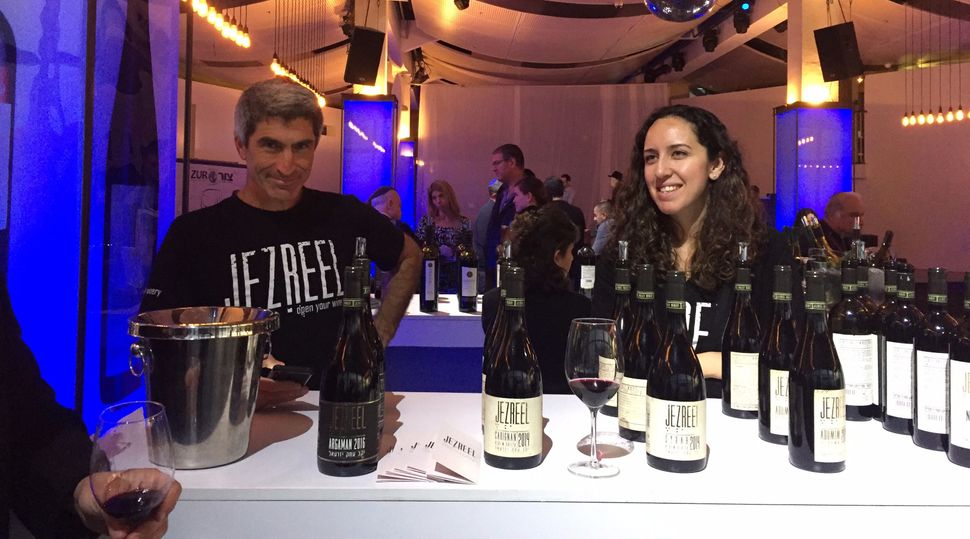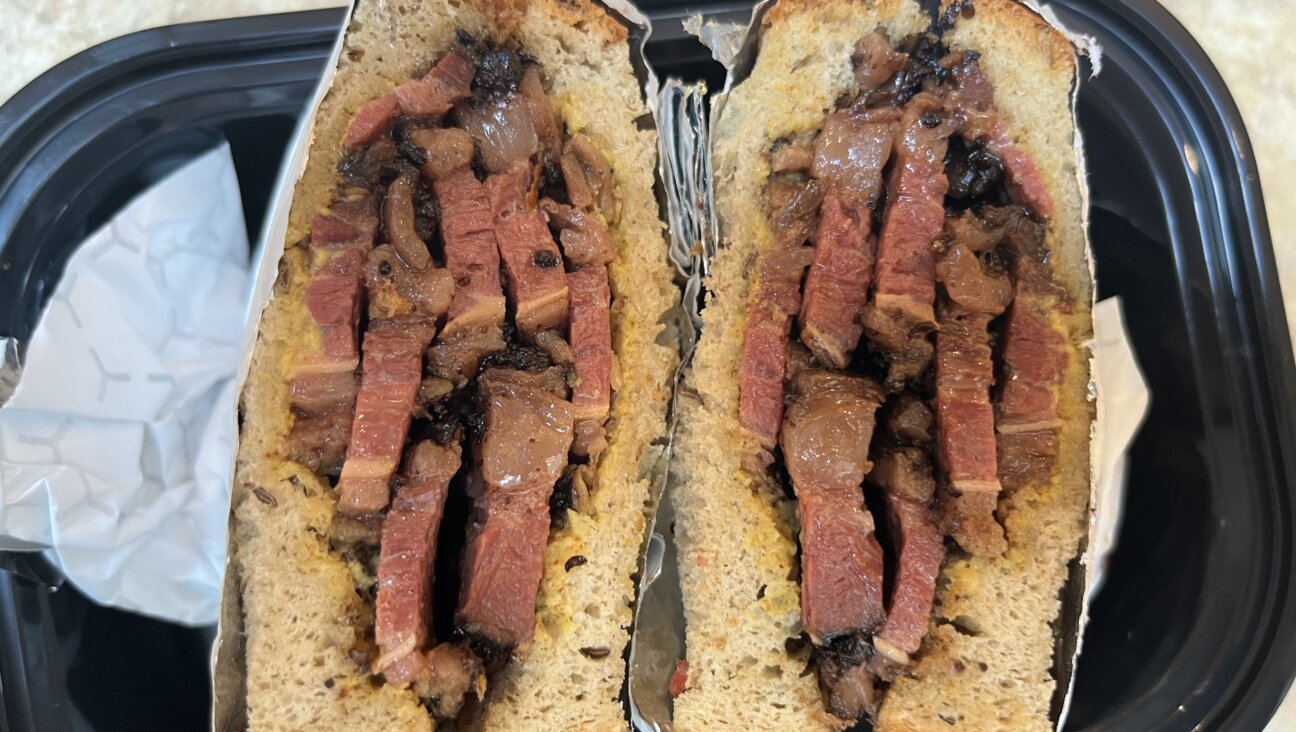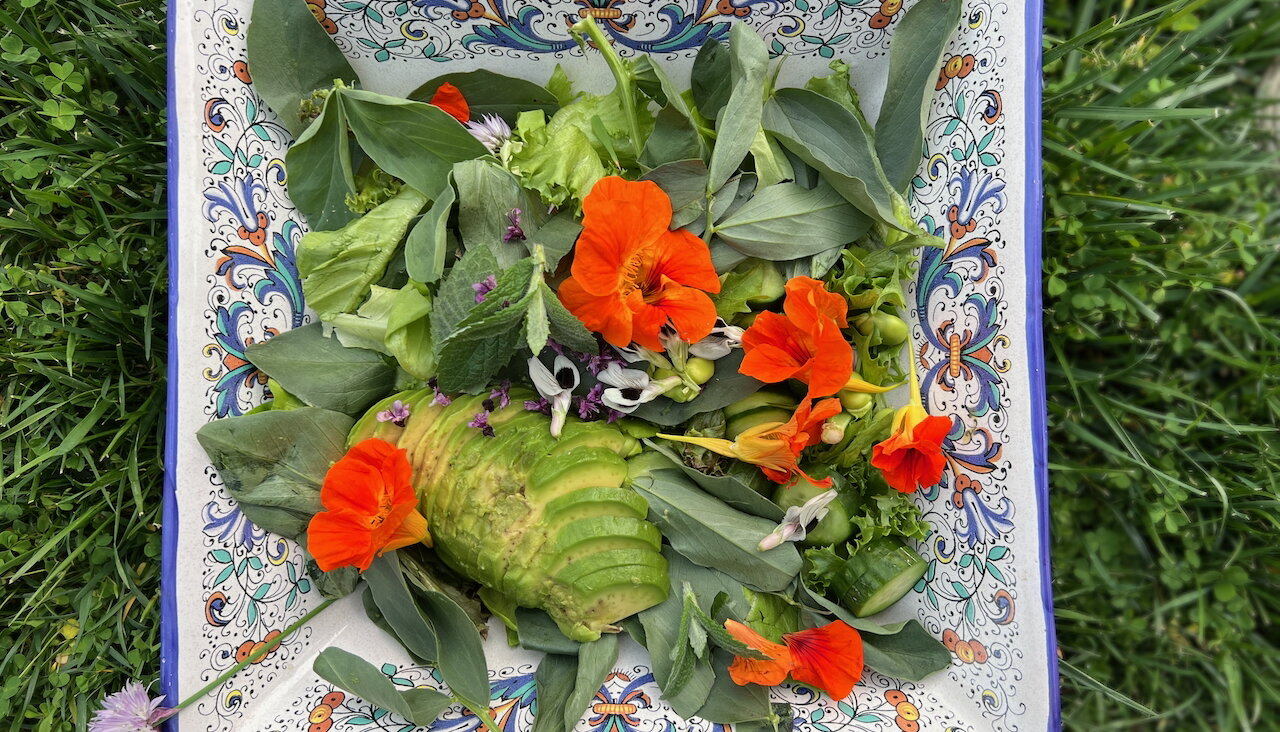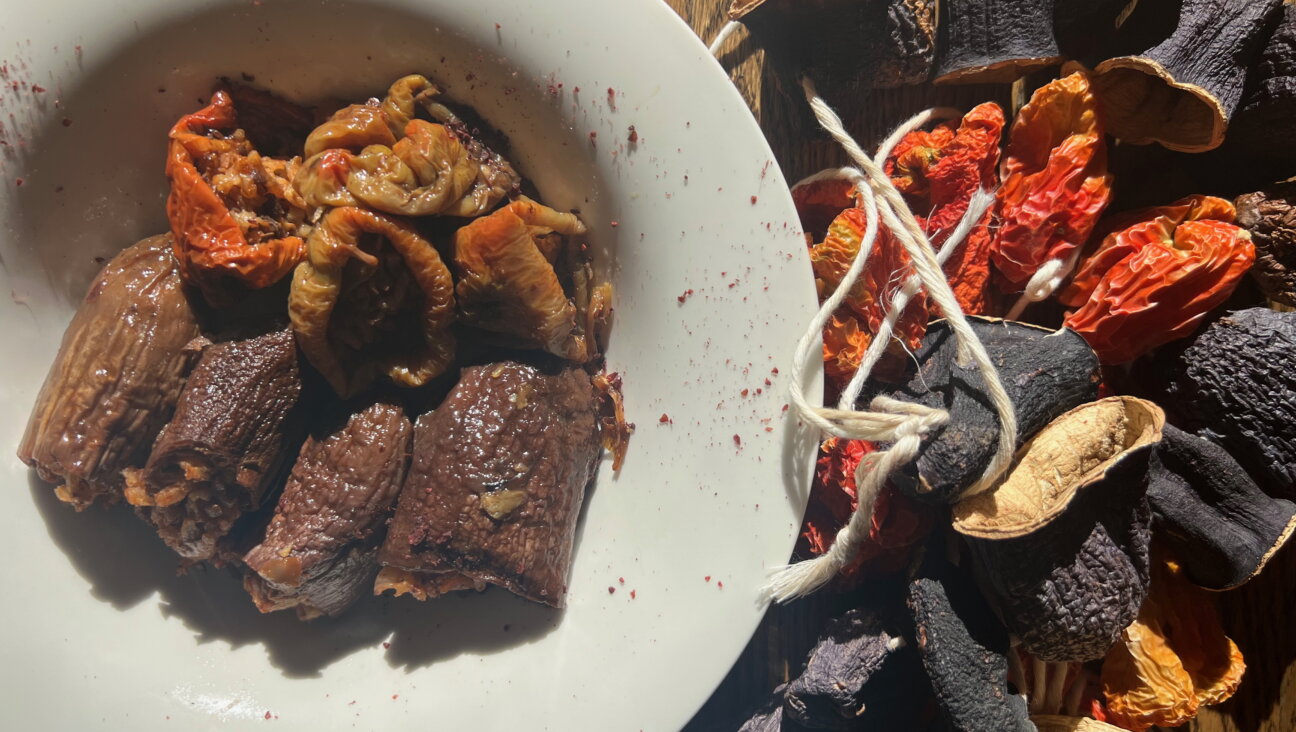Innovation and Indigenous Grapes Define A Boutique Kosher Winery To Watch

Jezreel co-founder Jacob Ner David (left) and marketing director Ma’ayan Klein at the KFWE in Tel Aviv. Image by Sadie Flateman
The surge of Israeli boutique wineries — defined as those producing 20,000 cases or fewer — is hard to miss. Those in the Royal Wine Corp. portfolio include Shiloh, Psgot, Bazelet haGolan, Or Haganuz, Matar, Vitkin and Titora.
One producer, Jezreel Valley Winery, stands out by marketing itself as “true Israeli winemaking” and “original Israeli wine.” The winery puts forward an image of casual enjoyment, and emphasizes that it works with Mediterranean grape varieties, indigenous grapes and Argaman — an Israeli crossing of the grapes Carignan and Sousao (developed in 1972).
If that is not honey enough for the Israeli wine enthusiast, Jezreel’s “Pet Nat” will make your neck turn. The winery’s version of Petillant Natural — a method for making sparkling wine where fermentation finishes in the bottle and traps carbon dioxide under a bottle cap — is made in rosé (from Carignan) and white (Colombard and Dabouki).
Having the opportunity to catch up with Yehuda Nahar, Jezreel’s winemaker and CEO, at KFWE Tel Aviv, he explained that its Pet Nat was the idea of consulting winemaker Ari Erle. Erle, who studied and trained in Napa, brought back a bottle of Petillant Natural from Onward wine in California that the Jezreel team fell in love with. The artisanal single-vineyard wine made by Faith Armstrong Foster had a taste that resonated with them. Nahar said that the winery is looking to make lighter, fresher wines — wines that go with Israeli food and the Mediterranean climate.
As for reds, when asked about the choice to work with the Argaman grape, Erle said that it should be the future of Israeli wine because it is so well-suited to the warm climate, and gets good results: ripening with relatively moderate sugar levels and high acidity, producing a more balanced wine. It is also used to add acidity in their blends. The Jezreel Argaman 2016 is a youthful wine with deep purple color and a cool, blue fruit profile with oak spice and gentle tannins. At 13.9% alcohol, it is an easy-drinking wine. They age the wine in 300 litre oak barrels of 15-20% new wood. Their conviction to make a monovarietal wine from the Argaman grape asserts Jezreel as a winery to watch. Located in the Yesreel Valley in the Lower Galilee, its total current production is just over 4,000 cases annually.
While warm climate can be seen as a limiting factor for wine production in Israel, an equalizer is the possibility for innovation. Whereas the European Union’s strict PDO and PDI wine laws help protect and define wine, there is also a case to be made that it limits creativity and biodiversity. The fact that Israel’s wine laws are as yet undefined and loosely enforced (you can plant what you want where you want within the grapes allowed by the Ministry of Agriculture and Rural Development) may turn out to be one of the industry’s strongest assets.
Sadie Flateman is a specialist in wines of Israel. She lives in New York and has a big appetite.
The Forward is free to read, but it isn’t free to produce

I hope you appreciated this article. Before you go, I’d like to ask you to please support the Forward.
Now more than ever, American Jews need independent news they can trust, with reporting driven by truth, not ideology. We serve you, not any ideological agenda.
At a time when other newsrooms are closing or cutting back, the Forward has removed its paywall and invested additional resources to report on the ground from Israel and around the U.S. on the impact of the war, rising antisemitism and polarized discourse.
This is a great time to support independent Jewish journalism you rely on. Make a gift today!
— Rachel Fishman Feddersen, Publisher and CEO
Support our mission to tell the Jewish story fully and fairly.
Most Popular
- 1

Fast Forward Ye debuts ‘Heil Hitler’ music video that includes a sample of a Hitler speech
- 2

Opinion It looks like Israel totally underestimated Trump
- 3

Culture Cardinals are Catholic, not Jewish — so why do they all wear yarmulkes?
- 4

Fast Forward Student suspended for ‘F— the Jews’ video defends himself on antisemitic podcast
In Case You Missed It
-

Culture Should Diaspora Jews be buried in Israel? A rabbi responds
-

Fast Forward In first Sunday address, Pope Leo XIV calls for ceasefire in Gaza, release of hostages
-

Fast Forward Huckabee denies rift between Netanyahu and Trump as US actions in Middle East appear to leave out Israel
-

Fast Forward Federal security grants to synagogues are resuming after two-month Trump freeze
-
Shop the Forward Store
100% of profits support our journalism
Republish This Story
Please read before republishing
We’re happy to make this story available to republish for free, unless it originated with JTA, Haaretz or another publication (as indicated on the article) and as long as you follow our guidelines.
You must comply with the following:
- Credit the Forward
- Retain our pixel
- Preserve our canonical link in Google search
- Add a noindex tag in Google search
See our full guidelines for more information, and this guide for detail about canonical URLs.
To republish, copy the HTML by clicking on the yellow button to the right; it includes our tracking pixel, all paragraph styles and hyperlinks, the author byline and credit to the Forward. It does not include images; to avoid copyright violations, you must add them manually, following our guidelines. Please email us at [email protected], subject line “republish,” with any questions or to let us know what stories you’re picking up.















